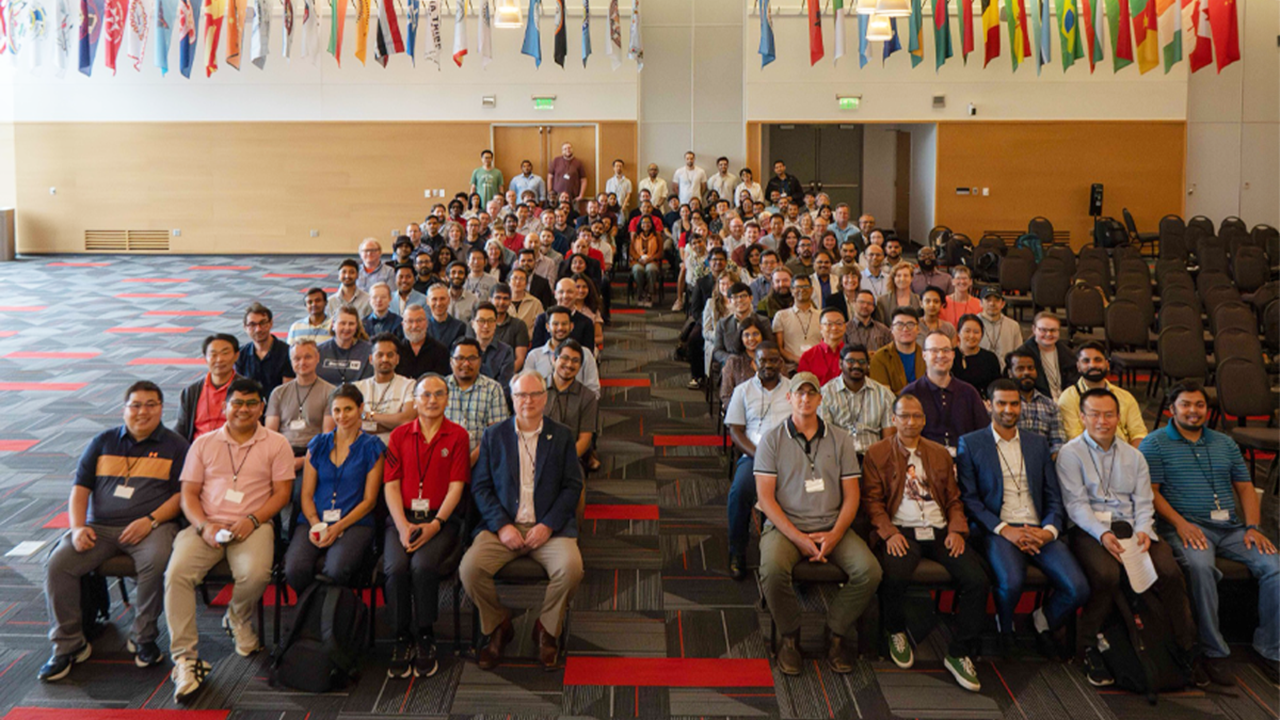USD Hosts First NSF-Sponsored, AI-Powered Materials Discovery Workshop in the Great Plains

Held June 22–25 and supported by the NSF, the AI-Powered Materials Discovery Workshop brought together over 200 participants from more than 50 institutions across the United States.
The event marked a major milestone in advancing the use of AI to accelerate materials discovery, emphasizing regional collaboration, scientific innovation and workforce development. With 52 invited presentations, the workshop featured cutting-edge research at the intersection of AI, physics, chemistry and engineering.
“This workshop marks a pivotal step toward building a strong, collaborative community in AI-driven materials discovery across the Great Plains,” said Dongming Mei, Ph.D., professor of physics in the College of Arts and Sciences at USD and organizer of the workshop. “It opens a path forward for strategic planning and future investment in research, education and innovation.”
USD President Sheila K. Gestring delivered the welcome address, emphasizing the university’s commitment to interdisciplinary research and innovation. Provost Kurt Hackemer, Ph.D., chaired the first session, underscoring the institutional leadership behind this landmark effort.
Topics covered throughout the workshop included the development of robust AI infrastructure, materials-specific databases, uncertainty quantification and high-throughput computational methods. Applications covered a range of topics, from quantum materials and biomedical systems to energy devices and structural composites.
A dedicated focus on education and training included mini-schools and sessions tailored to students, postdocs and early-career researchers. These programs aimed to integrate AI into materials science education and prepare the next generation of scientists for data-intensive research.
The capstone panel discussion included experts from national labs, universities and research institutes to outline critical needs for the field’s future. Key messages included the importance of high-quality, reproducible data, the value of cross-institutional partnerships and the urgency of establishing shared infrastructure for AI in materials discovery.
As a major outcome of the event, organizers will produce two white papers; the first will identify priority research directions and the second will detail infrastructure and coordination strategies to advance AI-powered discovery across disciplines.
With strong attendance, high-level engagement and visionary planning, the workshop sets the stage for continued leadership and innovation in the years to come.
“This is just the beginning,” Mei said. “We are excited to see the Great Plains region step up as a national contributor to next-generation AI-driven materials research.”



